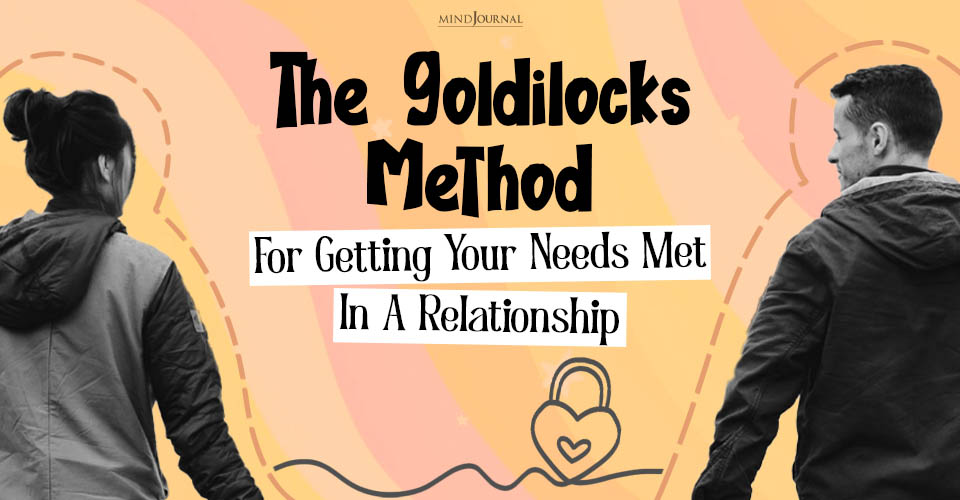Do you think you’re the only one who feels insecure about your relationships? Think again, because the 7 most common insecurities can plague any relationship!
Insecurities are an inherent part of being human, and they can often seep into our relationships, acting as barriers to intimacy and connection.
These insecurities can take on various forms, affecting the dynamics between partners and the overall health of the relationship.
In this article, we delve into the 7 most common insecurities that couples often encounter, offering deep insights into their origins, impacts, and potential solutions.
Human beings are complex creatures with a wide range of emotions and experiences that shape their perceptions of themselves and others.
These perceptions can often give rise to the7 most common insecurities that find their way into the intimate realm of relationships.
These 7 most common insecurities can arise from various sources, such as personal experiences, past traumas, societal pressures, or even internalized beliefs.
These internal struggles can significantly influence how individuals perceive themselves and how they interact with their partners.
The impacts of these 7 most common insecurities on relationships are profound and multifaceted. These 7 most common insecurities can erode trust, create communication barriers, and foster unhealthy patterns of behavior.
These 7 most common insecurities can lead to a perpetual cycle of seeking validation, becoming overly dependent on a partner for reassurance, or even developing controlling tendencies.
The resulting power imbalances and emotional strain can put a significant strain on the relationship, hindering its growth and fulfillment.
Understanding and addressing these 7 most common insecurities is crucial for couples seeking to nurture a healthy and thriving relationship.
By shedding light on the 7 most common insecurities in a relationship, we aim to provide individuals and couples with valuable insights and strategies to navigate these challenges effectively.
Read Spiritual Bypassing In Relationships: Navigating The Shadows Of Spiritual Growth
Throughout this article, we will explore 7 most common insecurities in a relationship:
- Insecurity about Self-Worth: The fear of not being good enough, stemming from personal experiences or societal pressures, can lead to a constant need for validation and reassurance.
- Jealousy and Fear of Infidelity: Insecurities surrounding trust and the fear of betrayal can give rise to jealousy, possessiveness, and suspicion, ultimately damaging the foundation of the relationship.
- Fear of Rejection: Past emotional wounds or experiences of abandonment can lead to an intense fear of rejection, hindering individuals from fully expressing themselves and engaging in vulnerability.
- Insecurity about Physical Appearance: Society’s emphasis on physical beauty can breed insecurities about one’s own appearance, potentially leading to self-doubt, body image issues, and a skewed perception of self-worth.
- Financial Insecurity: Disparities in income, debt, or financial instability can trigger feelings of inadequacy or dependence, causing strain and power struggles within the relationship.
- Insecurity about Emotional Availability: Past trauma or a fear of vulnerability can make it challenging for individuals to express and connect emotionally, hindering the depth of intimacy in the relationship.
- Fear of Abandonment: Deep-rooted fears of being left alone can manifest as clinginess, neediness, and an overwhelming desire for constant reassurance, impacting the sense of security and stability within the relationship.
By delving into the origins, impacts, and potential solutions for these 7 most common insecurities in a relationship, we hope to provide couples with the tools necessary to navigate these challenges.
Through self-reflection, open communication, empathy, and a commitment to personal growth, individuals can address their insecurities and foster a stronger, more resilient bond with their partner.
In the following sections, we will explore each insecurity in-depth, offering practical strategies and insights to help individuals and couples overcome these hurdles and create a foundation of love, trust, and security within their relationships.
7 Most Common Insecurities In A Relationship
Here are the seven most common insecurities in relationships:

1. Insecurity about Self-Worth:
One of the most prevalent insecurities in relationships is the fear of not being good enough. This deep-rooted insecurity often stems from personal experiences, past traumas, or societal pressures.
Individuals plagued by self-worth insecurities may constantly seek validation and reassurance from their partner, leading to an imbalanced power dynamic.
Over time, this reliance on external validation can strain the relationship, as the burden of constantly boosting one’s self-esteem becomes overwhelming for both parties.
To address this insecurity, it is crucial for individuals to work on building their own self-esteem and self-worth. Engaging in self-care activities, such as pursuing hobbies or practicing mindfulness, can help boost confidence.
Seeking therapy or counseling can also provide valuable insights and tools to overcome deep-seated insecurities.
Open and honest communication between partners is essential in fostering an environment where both individuals feel valued and appreciated for their inherent worth.
2. Jealousy and Fear of Infidelity:
Jealousy is another common insecurity that can wreak havoc on relationships. The fear of infidelity, whether grounded in past experiences or personal insecurities, can lead to possessiveness, control, and constant suspicion.
Such behaviors erode trust and create a toxic environment that stifles personal freedom and autonomy.
Addressing jealousy requires open and honest communication between partners. It is crucial to have discussions about boundaries, expectations, and fears surrounding infidelity.
Building trust is a gradual process that involves transparency, consistency, and reassurance. Both partners should work towards cultivating a sense of security within the relationship and promoting individual growth and autonomy.
3. Fear of Rejection:
Fear of rejection, often stemming from past emotional wounds or abandonment experiences is one of the 7 most common insecurities in a relationship.
This insecurity can manifest as an intense need for constant reassurance, fear of vulnerability, or an aversion to expressing one’s true feelings.
Individuals grappling with this insecurity may struggle with opening up emotionally, fearing that their partner will reject them or leave them.
To overcome the fear of rejection, individuals need to learn to embrace vulnerability. Creating a safe space within the relationship where both partners feel comfortable expressing their emotions is crucial.
Active listening, empathy, and understanding are essential in fostering an environment where individuals can share their fears and insecurities without judgment.
Both partners must work together to build trust and provide reassurance, demonstrating that vulnerability is met with love and acceptance.
Read 7 Things Women Obsess About That Don’t Matter To Men
4. Insecurity about Physical Appearance:
In today’s appearance-focused society, it is not uncommon for individuals to feel insecure about their physical appearance.
This insecurity can lead to body image issues and self-doubt within relationships. The pressure to meet societal beauty standards can undermine self-confidence and create a sense of inadequacy.
To address this insecurity, partners must prioritize building a positive body image within themselves and within the relationship.
Encouraging self-love and self-acceptance is crucial. Both partners should focus on fostering emotional connections, emphasizing the importance of personality, character, and shared values rather than solely focusing on physical appearance.
Celebrating each other’s unique qualities and actively working to create a supportive environment can help alleviate the insecurity surrounding physical appearance.
5. Financial Insecurity:
Financial insecurities can strain relationships, leading to power struggles, resentment, and stress. Disparities in income, debt, or financial instability can trigger feelings of inadequacy or dependence.
Financial security is important for individuals to feel stable and secure within a relationship.
To address financial insecurities, open and transparent communication is key. Couples should have discussions about financial goals, expectations, and responsibilities.
Creating a joint financial plan that takes into account both partners’ needs and aspirations can help alleviate anxiety and promote a sense of shared responsibility.
Additionally, supporting each other’s financial endeavors, seeking professional advice when needed, and practicing empathy and understanding can contribute to a healthier financial dynamic in the relationship.
6. Insecurity about Emotional Availability:
Some individuals may struggle with insecurities surrounding emotional availability, originating from past trauma or a fear of vulnerability. This is one of the 7 most common insecurities that threaten a harmonious relationship.
This insecurity can manifest as emotional distance, difficulty expressing emotions, or fear of deep emotional connections.
Partners who are emotionally unavailable may inadvertently push their significant other away, leading to feelings of rejection or inadequacy.
Overcoming emotional unavailability requires patience, understanding, and open communication. Partners should create a safe and non-judgmental space where emotions can be freely expressed and acknowledged.
Building trust gradually and allowing vulnerability to flourish can help individuals overcome their emotional insecurities.
Seeking therapy or counseling can be beneficial for those who find it challenging to open up emotionally, as a professional can provide guidance and support.
Read 26 Common Turn-offs In A Relationship: Avoid These Pitfalls To Create A Lasting Bond
7. Fear of Abandonment:
Deep-rooted fear of abandonment is one of the 7 most common insecurities that often emerge from past experiences of loss or neglect.
Individuals grappling with this fear may exhibit clinginess, neediness, or an overwhelming desire for constant reassurance. This insecurity can strain relationships as the fear of being left alone becomes overwhelming and all-consuming.
To address the fear of abandonment, partners must work together to create a sense of security within the relationship.
Consistent displays of love, reassurance, and support can help build trust and alleviate anxieties. Setting healthy boundaries and emphasizing personal growth and independence can help individuals develop a stronger sense of self-worth and security.
Additionally, seeking therapy or counseling can provide valuable tools and coping mechanisms to navigate the deep-rooted fears associated with abandonment.
How To Heal These 7 Most Common Insecurities

At the heart of addressing the 7 most common insecurities in a relationship lies open and honest communication. It is essential for partners to create a safe and non-judgmental space where they can express their insecurities, concerns, and needs.
This involves actively listening to one another and empathizing with each other’s struggles. When individuals feel heard and understood, it fosters an environment of acceptance and mutual support.
Read Mastering Communication: Understanding Interpersonal Communication Definition And Importance
However, addressing the 7 most common insecurities requires more than just communication; it demands introspection and vulnerability.
It requires individuals to confront their deep-seated fears and anxieties, often stemming from past experiences or societal influences.
It is through self-reflection and personal growth that individuals can gain a deeper understanding of the origins of their insecurities.
Patience and empathy play vital roles in this process. It is important to remember that overcoming insecurities takes time and compassion.
Supporting one another in the journey of self-discovery and growth is paramount. By offering understanding, reassurance, and encouragement, partners can help build each other’s self-esteem and create a stronger sense of security within the relationship.
In some cases, seeking professional help, such as therapy or counseling, can be immensely beneficial.
A trained therapist can provide guidance, tools, and techniques to address insecurities, heal past wounds, and develop healthier coping mechanisms.
They can help individuals and couples navigate the complexities of their insecurities, providing a fresh perspective and additional support on the path toward healing and growth.
Building a strong and secure foundation within a relationship also involves cultivating self-love and self-acceptance.
When individuals develop a sense of inner security and worth, they are better equipped to navigate the insecurities that arise in their partnerships.
Engaging in self-care activities, pursuing personal passions, and engaging in practices that promote self-reflection and self-growth can contribute to building a positive self-image and reducing insecurities.
It is important to note that addressing insecurities does not mean eliminating them completely. Insecurities may still surface from time to time, but the goal is to create an environment where they are acknowledged and managed in a healthy manner.
By fostering open communication, trust, and empathy, couples can navigate insecurities together, growing stronger as a unit.
One crucial aspect of addressing insecurities is understanding their origins. Insecurities often stem from past experiences, such as childhood traumas, past relationships, or societal pressures.
Recognizing and acknowledging these sources can provide insight into why certain insecurities have taken root and help individuals and couples develop empathy and understanding for one another.
Once the origins of insecurities are identified, it is important to challenge negative beliefs and replace them with more positive and realistic ones.
This process involves reframing negative thoughts, challenging irrational beliefs, and practicing self-compassion.
By consciously replacing self-critical or fear-based thoughts with more affirming and empowering ones, individuals can gradually change their internal narratives and build a stronger sense of self-worth.
Another essential aspect of addressing insecurities is fostering trust within the relationship. Trust is the foundation upon which healthy relationships are built, and it plays a crucial role in alleviating insecurities.
Building trust requires intention, action, consistency, transparency, and reliability. By honoring commitments, maintaining open lines of communication, and demonstrating honesty and integrity, partners can foster an environment where both individuals feel safe and secure.
Ultimately, addressing insecurities in a relationship is an ongoing endeavor. It requires self-reflection, open communication, trust-building, and personal growth.
By actively working together to understand, acknowledge, and overcome insecurities, couples can create a foundation of love, trust, and security.
As they navigate the challenges that arise, they will emerge stronger, more resilient, and more connected, fostering a relationship that thrives on mutual support and emotional well-being.

Don’t Let Your Insecurities Define The Future Of Your Relationship
So, those were the 7 most common insecurities in a relationship. Insecurities are an inevitable part of human nature, capable of infiltrating and impacting the most intimate realms of our relationships.
However, it is important to recognize that these insecurities need not define or undermine the well-being of a partnership.
By acknowledging and actively addressing the most common insecurities, couples can cultivate a relationship based on trust, open communication, and emotional well-being.
The journey to overcoming insecurities in a relationship requires a commitment from both partners.
It demands introspection, vulnerability, and a willingness to confront deep-seated fears and anxieties. It is essential to create a safe and non-judgmental space where individuals can openly express their insecurities, concerns, and needs.
Open and honest communication serves as the cornerstone for navigating insecurities within a relationship.
Partners must actively listen to one another, empathize with each other’s struggles, and offer understanding and support.
It is through these dialogues that couples can develop a deeper understanding of the origins of their insecurities and work together to find constructive solutions.
Patience and empathy play vital roles in addressing insecurities. It is crucial to remember that these insecurities often stem from past experiences or societal influences, and overcoming them requires time and compassion.
Supporting one another in the journey of self-discovery and growth is paramount, as it fosters an environment of acceptance and mutual support.
Seeking professional help, like therapy or counseling, can also be immensely helpful. A trained therapist can provide guidance, tools, and techniques to address insecurities, heal past wounds, and develop healthier coping mechanisms.
They can help individuals and couples navigate the complexities of their insecurities, providing a fresh perspective and additional support on the path toward healing and growth.
Ultimately, building a strong and secure foundation within a relationship involves cultivating self-love and self-acceptance.
When individuals develop a sense of inner security and worth, they are better equipped to navigate the insecurities that arise in their partnerships.
Practicing self-care, engaging in activities that promote personal growth and fulfillment, and seeking opportunities for self-reflection can contribute to building a positive self-image and reducing insecurities.
No relationship is immune to insecurities, as they are an inherent part of the human experience.
However, by recognizing, acknowledging, and actively addressing these insecurities, couples can foster a relationship built on trust, emotional connection, and mutual support.
Frequently Asked Questions
What is the most common insecurity?
In today’s world, one of the most common insecurity is the fear of being judged socially.
What makes people insecure?
Insecurity can stem from various factors, including one’s childhood, past traumas, failure or rejection, loneliness, social anxiety, negative self-perception, striving for perfection, or having a critical parent or partner.
What is emotional insecurity?
Feelings of insecurity can generate anxiety due to uncertainty and a belief that one’s worth is inadequate. It reflects the volatility of an individual’s emotional well-being, influenced by factors such as self-perception and ego. Emotional insecurity poses a significant obstacle to establishing a strong and stable relationship.











Leave a Reply